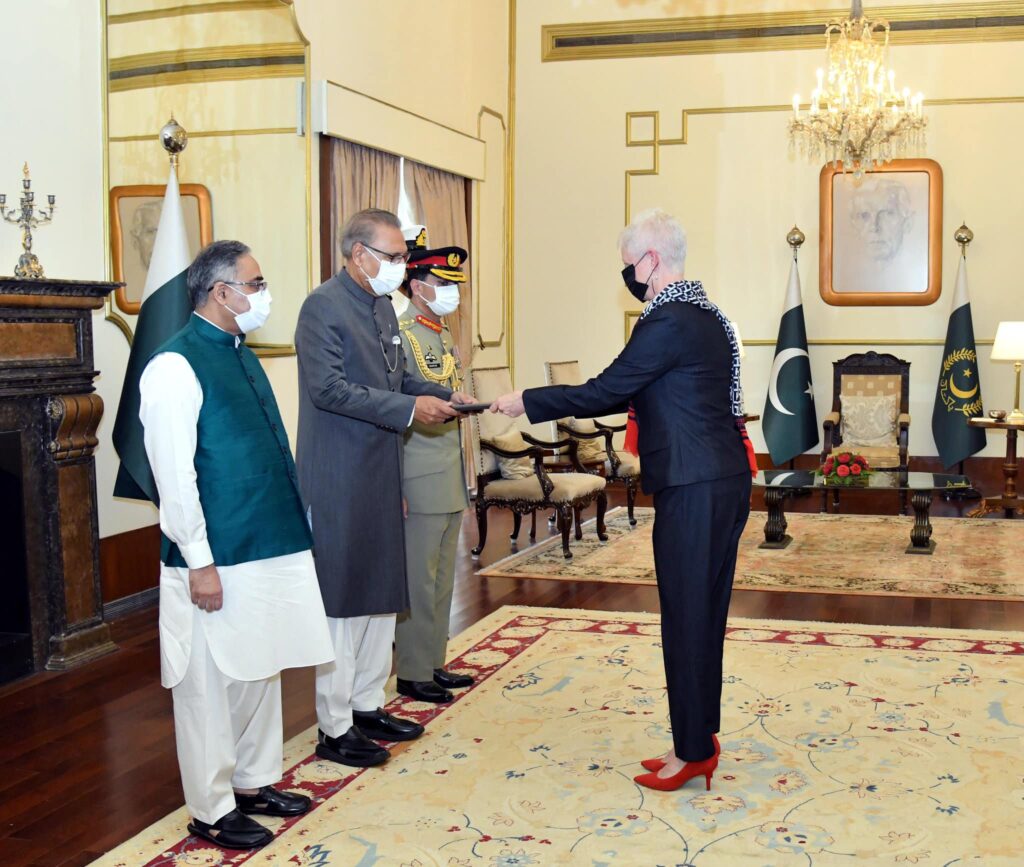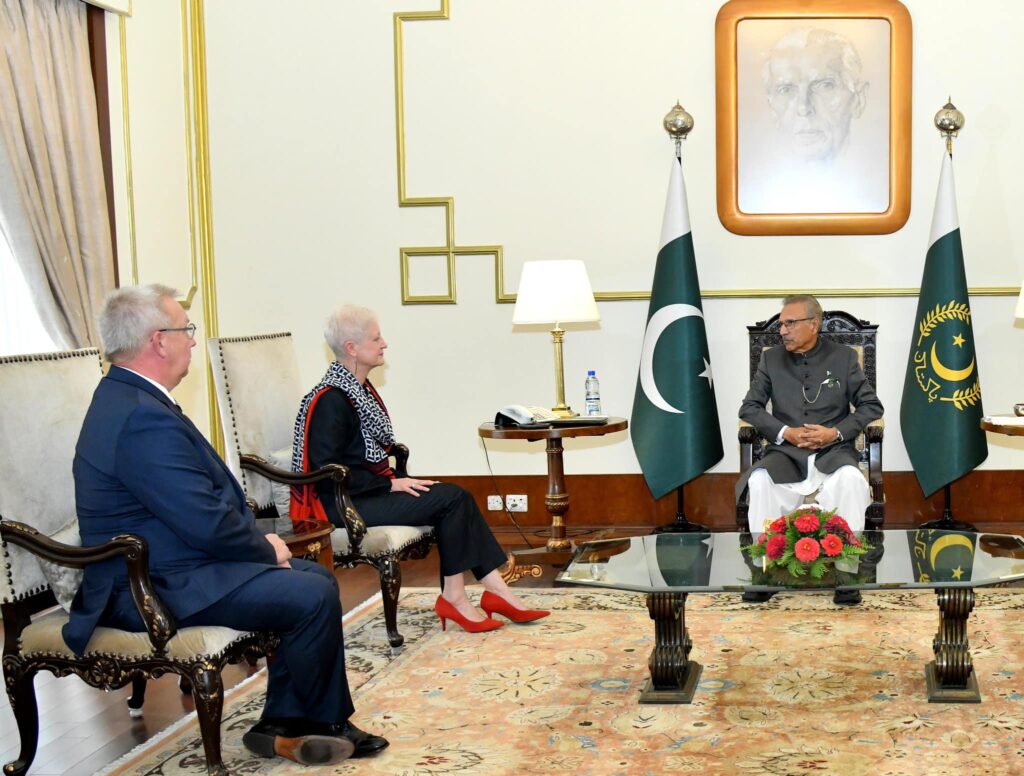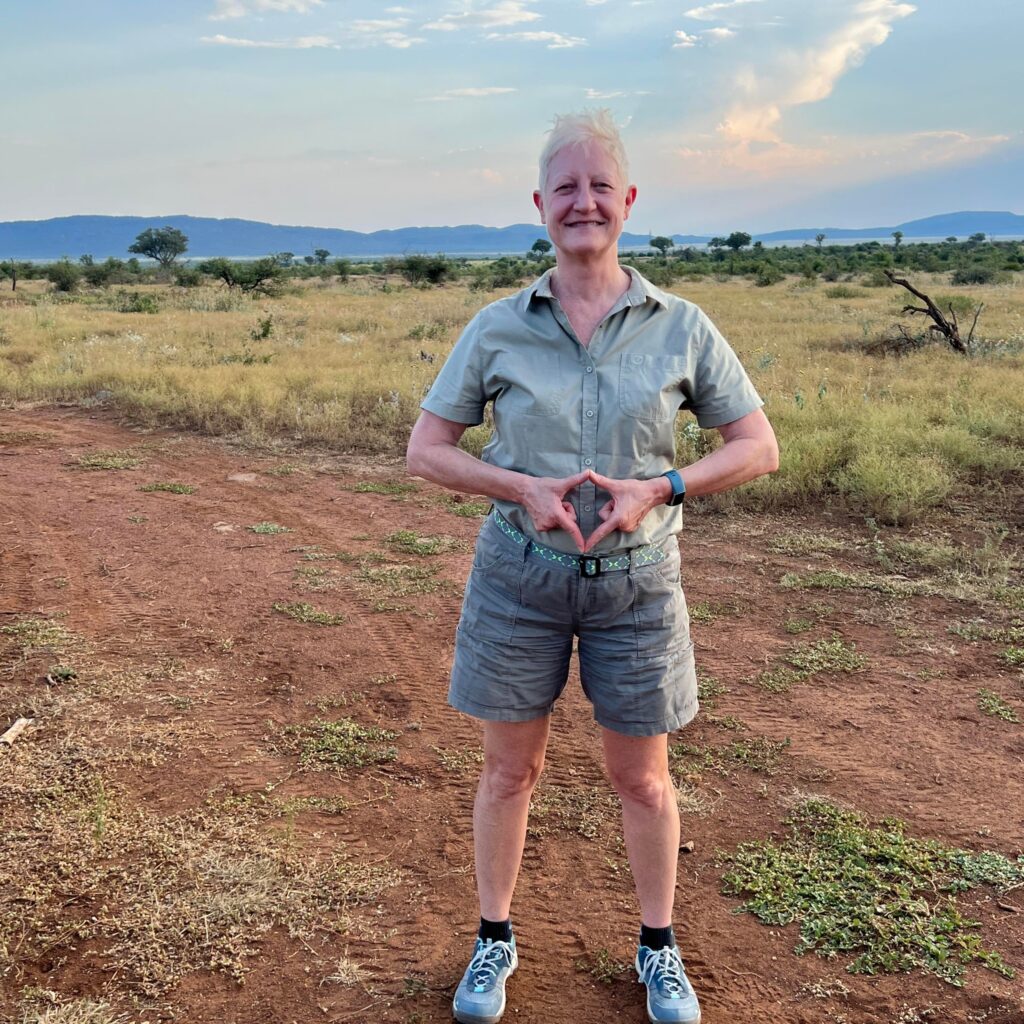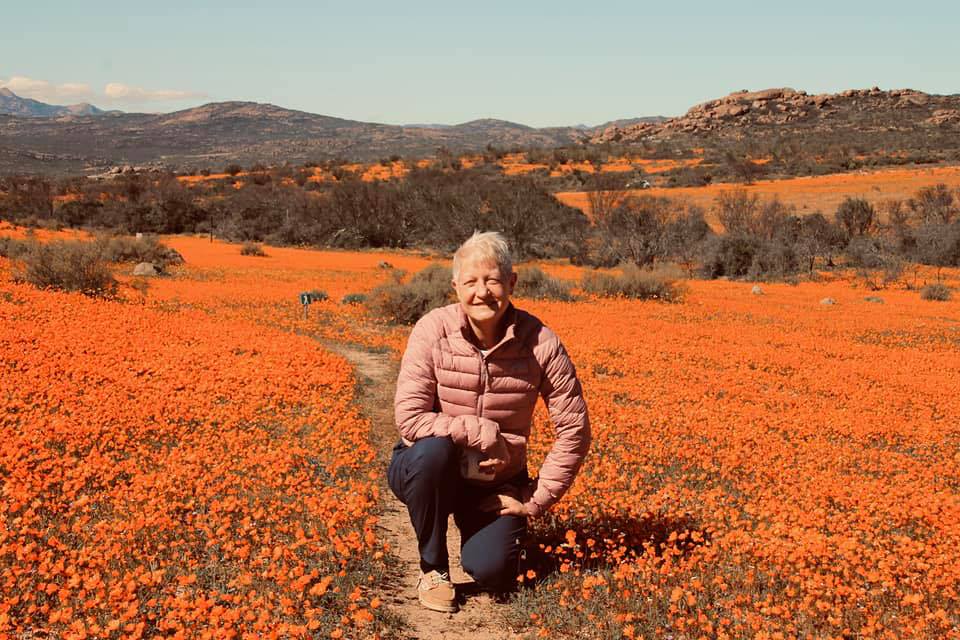Estonian diplomat Riina Kionka, previously the European Union’s ambassador to South Africa, has assumed her new post as the EU’s ambassador to Pakistan.
Kionka presented her credentials to the Pakistani president, Arif Alvi, on 1 July. Josep Borrell, the High Representative of the European Union for Foreign Affairs and Security Policy, appointed her to the post on 8 June.
Ambassador Kionka said Pakistan was her first choice. “I had never been to Pakistan before I arrived two weeks ago. But I’ve spent quite a lot of time on work trips to the Central Asian countries to the north of Pakistan. Of course, like anybody following international news, I have heard a lot – and unfortunately a lot of negative stories – about the country. But I wanted to see for myself, go beyond the cliché and discover Pakistan in all its complexity,” she told Estonian World.
“Pakistan is the second largest Muslim country in the world, with 220 million people and a nuclear programme. It is an endlessly complex, politically fascinating country with a rich and varied culture and a complicated birth story. And its neighbourhood means that questions of regional stability and security are at the top of the agenda. So it was my first choice because it’s a country of strategic importance for the European Union, and it is a new challenge for me as well.”
She admits Pakistan is a country of contrasts and it has a complex history regarding the Taliban, the ultra-Islamist regime that retook over the neighbouring Afghanistan last year.
“This history is the subject of dozens of academic books and the same quantity of historical fiction, both genres of which I’m currently reading through. This all suggests that it’s not quite a black and white story and within that story, the protagonists and antagonists sometimes switch roles.”

Pakistan is making progress in the human rights field
During various conflicts in the past, Pakistan has officially allied with the US and the West. At the same time, the United States’ State Sponsors of Terrorism designation list describes Pakistan as a “terrorist safe haven” where individual terrorists and terrorist groups are able to organise, plan, raise funds, communicate, recruit, train, transit and operate in relative security because of inadequate or supportive governance. What to make of it in 2022?
“That’s what I mean about protagonists and antagonists switching roles. That goes for both the internal situation as well as external actors. What I can say is that when the Taliban seized power in Afghanistan last year, there was enormous pressure on Pakistan to use its influence and close connections to help moderate the trajectory of the Taliban in Afghanistan. Also, they were asked to help with evacuations and getting humanitarian assistance across the border into that country. And this Pakistan has done, and the EU is grateful for this assistance.”
Kionka pointed out that Pakistan has its own Taliban to contend with, the Tehrik-i-Taliban Pakistan, commonly known as the Pakistani Taliban or the TTP. The group “is among many other attacks responsible for a massacre in a school in Peshawar in December 2014 with 149 victims – surely a wake-up call for the country. Then there are other groupings which pose a terrorist threat here as well.”
According to the newly-appointed ambassador, in the human rights field, Pakistan is making progress in some areas – like women’s and children’s rights as well as the death penalty.
“In other areas, the country is downright progressive, such as policies regarding trans people. Yet in many areas, like freedom of expression, of the media, freedom of association, enforced disappearances, freedom of religion and belief, things are not looking rosy,” Kionka noted.
“It’s a major concern, because Pakistan is part of a special EU trade programme, called GSP+, that gives the country important trade benefits for good performance in the areas of human and labour rights, environmental protection and good governance. And that special programme is coming up for renewal. So Pakistan will need to demonstrate tangible progress on human rights as well as labour rights in order to make a good case that it should continue benefitting from the GSP+ program. Each year, the duty savings for Pakistan are close to a half billion euros, so it’s no small piece of change.”

People tend to gain weight in Pakistan – as the food is fantastic
She said she had been following the Pakistani politics daily for the last six months – when she started getting positive signals about being posted there. “And I can tell you, the last six months have been quite tumultuous, with the country at the brink of a constitutional crisis, the government being toppled and people struggling with high inflation.”
When it comes to challenges working in Pakistan, Kionka said she had only been in the country for two weeks, so it’s hard to generalise. “But I can already see that the strongly decentralised nature of the governing structure here will post logistics issues – there are four provinces and other entities and much of our cooperation work happens directly with them, not the federal government. And it’s a big country and its most populous province is bigger than any of European country.”
“Also what’s a change for me is that everyone seems to be quite interested in engaging with the EU, so it’s more a question of choosing rather than chasing contacts. Finally, a number of colleagues have indicated that they have gained weight serving here, since the food is fantastic and Pakistani hospitality is legendary.”
According to Kionka, Pakistan is a country of strategic importance for the European Union. “In fact, we have something called the Strategic Engagement Plan, agreed in 2019, which serves as a blueprint for how to advance on relations.”
“Pakistan is important to the EU for any number of reasons: the geopolitical context, the trade relationship, human rights, the migration file (Pakistan is an origin, transit and destination country), counterterrorism, climate to name a few.”
Her main responsibilities in Pakistan include leading the delegation “in pursuing closer political ties, in initiating and implementing the myriad of programs that cover the areas I mentioned. To keep the EU’s interests at the forefront of whatever we do. And to coordinate EU action with the sixteen, soon to be seventeen, member state embassies present. In short, I am to be the face, head and heart of the EU in this country.”
Most recently, Kionka was the EU’s ambassador to South Africa, a post she was appointed to in October 2019. Before that, she was the chief foreign policy advisor to the president of the European Council, Donald Tusk, which made her the most influential official of Estonian nationality in the European Union.

An accidental diplomat
Kionka was born in Detroit, Michigan, in 1960 to an Estonian mother and an American father of German descent. She’s a diplomat by accident, as she told Estonian World in an interview in 2017. As a kid, she wanted to become a musician and a conductor. However, fate had other plans for her.
“At some point during high school I decided I didn’t want to spend the hours in dingy, windowless basement practice rooms that it would take to be good enough to become a professional performer, which is always the path to becoming a conductor. So, when I entered university, it was with the thought of studying law. That lasted until I found out what kind of work lawyers actually do.”
So, instead of pursuing a career in music – or law, for that matter – she began moving towards international relations, which, she told Estonian World, had always been an interest of hers – “for genetic reasons, from a very early age. My mother’s and grandparents’ refugee experience was formative for me.”
Kionka has also worked as an analyst at Radio Free Europe, before joining the Estonian Ministry of Foreign Affairs in 1993. She was Estonia’s ambassador to Germany from 2000-2004; in 2005, she joined the Council of the European Union where she headed a unit dealing with transatlantic relations and the United Nations. In 2007, she became Javier Solana’s special representative on human rights and in 2014 she joined Donald Tusk’s cabinet as chief foreign policy adviser.

